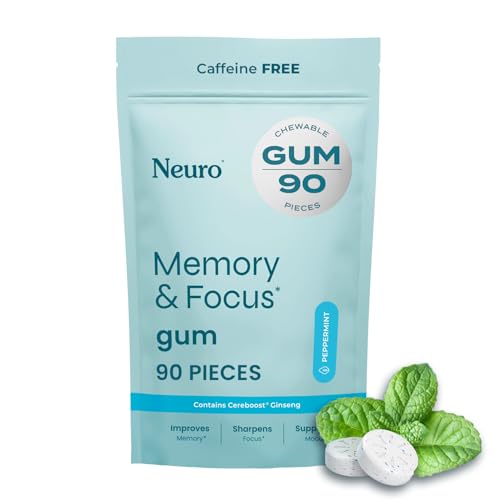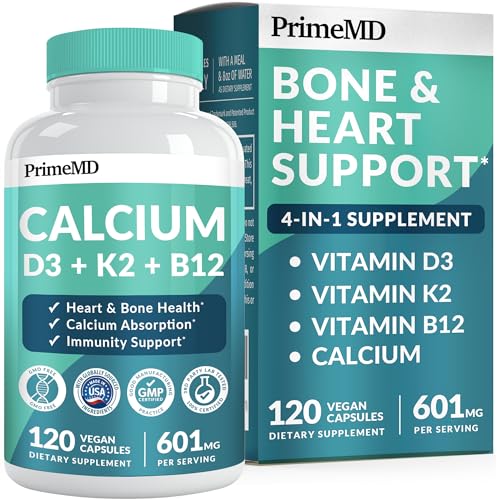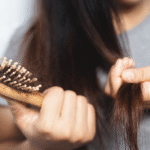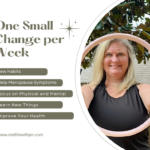You know that moment when you’re sitting in a meeting and suddenly feel like you’ve been transported to the surface of the sun? Or when you walk into a room and completely forget why you’re there—again? Welcome to menopause, my friend. It’s like puberty’s revenge, but with more wisdom and significantly less patience for nonsense.
Here’s the truth: menopause isn’t a disease that needs curing—it’s a natural transition. But let me tell you, just because it’s natural doesn’t mean those hot flashes, mood swings, and sleepless nights feel like a walk in the park. I’ve spent countless hours researching (and yes, experiencing) what actually works, and I’m here to share the best supplements for menopause that can help you navigate this phase with grace—or at least with fewer impromptu personal summers.
Whether you’re dealing with hot flashes that could melt an iceberg, brain fog thicker than a London morning, or joints that creak louder than your grandmother’s stairs, the right supplements can be absolute game-changers. So grab your favorite beverage, get comfortable, and let’s dive into what actually works.

What Are the Best Supplements for Menopause Relief?
Let me cut straight to the chase. The best supplements for menopause aren’t one-size-fits-all magic pills (if only!). Your body is unique, and what works wonders for your best friend might not be your personal superhero. That said, certain supplements have earned their stripes through both scientific research and real-world results.
The Heavy Hitters: Top Supplements Worth Your Attention
Black Cohosh has been the star player in the menopause supplement game for decades. This herbal powerhouse is particularly effective for reducing hot flashes and night sweats—those delightful midnight sauna sessions nobody asked for. Studies suggest it works by potentially affecting serotonin receptors, helping to regulate your body’s thermostat.
Vitamin D and Calcium are your bone health’s dynamic duo. During menopause, declining estrogen levels can weaken bones faster than you can say “osteoporosis.” These two work together like peanut butter and jelly—Vitamin D helps your body actually absorb that calcium, making them essential menopause bone health vitamins.
Omega-3 Fatty Acids deserve a standing ovation for their multitasking abilities. They tackle inflammation (hello, menopause joint pain supplements!), support brain function (goodbye, brain fog!), and may even help stabilize mood swings. Think of them as your body’s peacekeepers during this transitional time.
Magnesium is the unsung hero you didn’t know you needed. This mineral is involved in over 300 biochemical reactions in your body and can help with sleep quality, muscle relaxation, and even anxiety reduction. It’s basically a chill pill in supplement form.
Which Supplements Reduce Hot Flashes and Night Sweats?
Ah, hot flashes—nature’s way of reminding you that you’re not in control. If you’re tired of feeling like a human radiator, these supplements for hot flashes menopause can offer real relief:
Your Hot Flash Fighting Arsenal
- Black Cohosh: The MVP for temperature regulation, with clinical studies showing significant reductions in hot flash frequency and intensity
- Red Clover: Rich in plant-based estrogens (isoflavones) that may help balance hormones naturally
- Sage Extract: Traditionally used for centuries, this herb has shown promise in reducing excessive sweating
- Soy Isoflavones: These phytoestrogens mimic your body’s natural estrogen, potentially easing vasomotor symptoms
- Evening Primrose Oil: Contains gamma-linolenic acid (GLA), which may help regulate body temperature
Pro tip: Keep a journal of when hot flashes strike. Identifying triggers (spicy foods, stress, that third glass of wine) combined with the right supplements creates a powerful one-two punch against those heat waves.
Best Herbal Supplements for Menopause: Nature’s Pharmacy
I’m a big believer in letting nature do some of the heavy lifting. The best herbal supplements for menopause have been used for generations, and modern science is finally catching up to what our grandmothers already knew.
The Herbal Dream Team
Dong Quai (Angelica sinensis) is sometimes called “female ginseng” in traditional Chinese medicine. It’s been used for hormonal balance and may help with several menopause symptoms, though I’ll be honest—the research is mixed. Many women swear by it, while studies remain inconclusive.
Maca Root isn’t just for fertility—this Peruvian superfood can help balance hormones, boost energy (essential menopause fatigue supplements!), and even improve libido. Yes, that libido that went on vacation without leaving a forwarding address.
Ashwagandha is your stress-busting adaptogen. During menopause, stress can amplify every single symptom. This ancient herb helps your body handle stress more gracefully while potentially supporting thyroid function and energy levels. Think of it as yoga for your hormones.
Chasteberry (Vitex) works on your pituitary gland to help regulate hormone production. It’s particularly helpful if you’re experiencing mood swings that make you feel like you’re on an emotional rollercoaster designed by someone who clearly hates joy.
-
 Buy Now$18.49
Buy Now$18.49We earn a commission if you make a purchase, at no additional cost to you.
03/02/2026 10:13 am GMT -
 Buy Now$14.24
Buy Now$14.24We earn a commission if you make a purchase, at no additional cost to you.
03/02/2026 10:14 am GMT -
 Buy Now$17.59
Buy Now$17.59We earn a commission if you make a purchase, at no additional cost to you.
03/02/2026 10:14 am GMT
Do Menopause Supplements Help with Mood Swings and Brain Fog?
Short answer? Absolutely. Long answer? Let me explain.
Clearing the Mental Fog
Menopause brain fog supplements are real, and they work by addressing the underlying issues—hormone fluctuations, inflammation, and nutrient deficiencies. Here’s what actually helps:
Omega-3s (DHA and EPA) are crucial for brain health. Your brain is about 60% fat, and these healthy fats keep your cognitive function sharp. They’re like premium fuel for your mental engine.
B-Complex Vitamins, especially B6, B12, and folate, support neurotransmitter production. These are the chemical messengers that keep your mood stable and your mind clear. Low levels can contribute to both brain fog and mood swings.
Ginkgo Biloba has been used for centuries to improve cognitive function and memory. While results vary, many women report clearer thinking and better concentration.
L-Theanine promotes calm focus without drowsiness—perfect for those days when anxiety and mental fog team up against you.
Supplements for Specific Menopause Symptoms: Your Personalized Toolkit
Let’s get specific because your symptoms deserve targeted solutions.
Menopause Sleep Supplements
When counting sheep feels like a full-time job:
- Melatonin: Your body’s natural sleep hormone, often disrupted during menopause
- Magnesium Glycinate: The most absorbable form, promoting deep, restful sleep
- Valerian Root: Nature’s sedative without the morning grogginess
- L-Theanine: Promotes relaxation and helps quiet racing thoughts
Menopause Supplements for Weight Loss
That stubborn midlife weight gain is real, but these can help:
- Green Tea Extract: Boosts metabolism and contains beneficial antioxidants
- Conjugated Linoleic Acid (CLA): May help reduce body fat while preserving lean muscle
- Chromium Picolinate: Helps regulate blood sugar and reduce cravings
- Protein Supplements: Supports muscle mass, which naturally declines during menopause
Menopausal Hair Loss Supplements
For hair that’s thinning faster than your patience:
- Biotin: The classic hair, skin, and nail vitamin
- Marine Collagen: Supports hair structure and strength
- Iron: Deficiency is common during perimenopause and can cause hair loss
- Zinc: Essential for hair growth and repair
Menopause Joint Pain Supplements
When your joints feel older than you do:
- Glucosamine and Chondroitin: Support cartilage health and reduce inflammation
- Turmeric (Curcumin): Powerful anti-inflammatory that eases joint discomfort
- MSM (Methylsulfonylmethane): Reduces joint pain and stiffness
- Omega-3s: Reduce inflammatory responses throughout the body
Are Menopause Supplements Safe and Effective?
This is the million-dollar question, isn’t it? The honest answer is: mostly yes, but with important caveats.
The Safety Breakdown
Quality matters tremendously. Not all supplements are created equal, and the supplement industry isn’t as tightly regulated as pharmaceuticals. Look for:
- Third-party testing certifications (USP, NSF, ConsumerLab)
- Transparent labeling with clear ingredient lists
- Reputable brands with established track records
- Manufacturing standards (GMP certified facilities)
Important note: Natural doesn’t automatically mean safe. Even herbal supplements can interact with medications or cause side effects. Black cohosh, for example, may affect liver function in rare cases. Red clover contains phytoestrogens that shouldn’t be taken if you have a history of hormone-sensitive cancers without consulting your doctor.
Can I Take Menopause Supplements Alongside Hormone Therapy?
Here’s where things get nuanced. The answer is often yes, but you absolutely must talk to your healthcare provider first.
Hormone replacement therapy (HRT) and certain supplements can interact in unexpected ways. For instance:
- Phytoestrogen-rich supplements (soy, red clover) might interfere with hormone therapy effectiveness
- Some herbs affect how your liver processes medications
- Certain supplements could amplify or counteract HRT effects
Think of it like cooking—you wouldn’t just throw random ingredients together without considering how flavors interact. Your healthcare provider can help you create a harmonious supplement-HRT symphony instead of a chaotic cacophony.
Which Brands Offer the Highest Quality Menopause Supplements?
I wish I could give you a definitive list, but here’s the truth: the “best” brand depends on your specific needs, budget, and body chemistry. However, I can share what to look for in quality brands:
Quality Indicators
Transparency is key. Great brands tell you exactly what’s in their products, where ingredients are sourced, and provide certificates of analysis.
Clinical backing matters. Look for companies that invest in research and can point to studies supporting their formulations.
Clean formulations without unnecessary fillers, artificial colors, or sketchy additives show a brand respects your body.
Some respected names in the menopause supplement space include Remifemin (for black cohosh), Nordic Naturals (omega-3s), Thorne Research, Pure Encapsulations, and Garden of Life. But always do your homework and read recent reviews—supplement quality can change.
What Vitamins and Minerals Support Bone Health During Menopause?
Let’s talk about your skeleton—that unsung hero that literally holds you together. During menopause, bone density can decline by 10-20% in the first five years after your periods stop. Not cool, estrogen. Not cool.
The Bone-Building Brigade
- Calcium 1200 mg
- Vitamin D 800-100 IU – enables calcium absorption
- Vitamin K2 90-120mg – directs calcium to bones
- Magnesium 320 mg – activates vitamin D and supports bone structure
- Boron 3 mg helps the body use calcium, magnesium, and Vitamin D
Real talk: Supplements alone won’t save your bones. Combine them with weight-bearing exercise (walking, dancing, strength training) and you’ve got a recipe for strong bones well into your golden years.
How Soon Can I Expect Results from Menopause Supplements?
Ah, patience—not exactly abundant when you’re dealing with uncomfortable symptoms, right? Here’s the realistic timeline:
The Waiting Game
Immediate (1-3 days): Some supplements like magnesium for sleep or B vitamins for energy might show quick effects.
Short-term (2-4 weeks): You might notice improvements in mood, sleep quality, and energy levels as your body adjusts.
Medium-term (4-8 weeks): This is when herbal supplements like black cohosh, red clover, and maca root typically show their full effects on hot flashes and hormonal symptoms.
Long-term (3-6 months): Benefits for bone health, hair growth, skin quality, and weight management require consistency and patience.
Pro tip: Start a symptom journal before beginning any supplement regimen. It’s easy to forget how bad things were when you finally start feeling better, and tracking helps you identify what actually works.
Are There Side Effects or Risks from Taking Menopause Supplements?
I’d love to tell you supplements are completely risk-free, but that would be misleading. While generally safe, they can cause side effects and complications, especially if taken incorrectly.
Potential Concerns
Common side effects include:
- Digestive upset (especially with calcium and iron)
- Headaches (from some herbal supplements)
- Allergic reactions (particularly to soy or specific herbs)
- Sleep disturbances (if taking energizing supplements too late in the day)
More serious risks:
- Liver damage (rare, but reported with high doses of black cohosh or kava)
- Blood clotting issues (with high-dose vitamin E or omega-3s)
- Interactions with medications (St. John’s Wort, for example, affects many drugs)
- Hormonal imbalances if phytoestrogens are overused
The golden rule: Start with one supplement at a time, introduce them slowly, and pay attention to how your body responds. And please, consult a healthcare provider before starting any new supplement regimen, especially if you have existing health conditions or take medications.
Building Your Personalized Menopause Supplement Stack
Here’s where we put it all together. Think of creating your supplement routine like building a custom smoothie—you want complementary ingredients that work together, not compete.
A Sample Daily Routine
Morning:
- Vitamin D3 + K2 (with breakfast for better absorption)
- Omega-3 fish oil
- B-Complex vitamin
- Calcium (if not taken at night)
Afternoon:
- Maca or Ashwagandha (if using for energy and stress)
- Iron (if needed, taken away from calcium)
Evening:
- Magnesium glycinate (promotes sleep)
- Black cohosh or red clover
- Calcium (the remainder of your daily dose)
- Melatonin (if needed for sleep, 30-60 minutes before bed)
Remember, this is just an example. Your perfect stack might look completely different based on your specific symptoms and needs.
Lifestyle Factors That Amplify Supplement Effectiveness
Here’s a secret that supplement companies don’t always emphasize: pills alone won’t transform your menopause experience. They’re powerful tools, but they work best as part of a holistic approach.
The Support Squad
Nutrition: A diet rich in whole foods, lean proteins, healthy fats, and colorful vegetables provides the foundation. Supplements are meant to supplement, not replace, good nutrition.
Exercise: Regular physical activity—especially strength training and weight-bearing exercises—combats weight gain, preserves bone density, improves mood, and helps regulate body temperature.
Stress management: Chronic stress amplifies every menopause symptom. Meditation, yoga, therapy, or even just regular coffee dates with friends can make a massive difference.
Sleep hygiene: Creating a cool, dark sleep environment and maintaining consistent bedtime routines helps those menopause sleep supplements work their magic.
Hydration: Drinking enough water (at least 8 glasses daily) supports every bodily function and can reduce hot flash intensity.
Your Menopause, Your Way
Listen, menopause isn’t easy—anyone who tells you otherwise is either lying or selling something. But armed with the right knowledge and the best supplements for menopause, you can absolutely navigate this transition with more comfort, confidence, and control.
The key is remembering that you’re not broken, and you don’t need fixing. Your body is simply changing, and these supplements are tools to support you through that change. Start with the symptoms bothering you most, choose quality supplements backed by research, give them time to work, and adjust as needed.
Most importantly, be patient with yourself. Finding the right combination might take some trial and error, and that’s completely normal. You’ve got this—and now you’ve got the knowledge to back up your choices.
Ready to take the next step? Start with one or two supplements that address your most pressing symptoms. Track your progress, stay consistent, and remember: this is temporary. You’re not just surviving menopause—you’re learning to thrive through it.
What’s been your experience with menopause supplements? I’d love to hear what’s worked (or hasn’t worked) for you in the comments below. We’re all in this together!
Affiliate Disclosure
Transparency matters to me. This article may contain affiliate links to products and services. If you make a purchase through these links, I may earn a small commission at no additional cost to you. These commissions help support the creation of free, informative content like this article.
Please know that I only recommend products and brands I genuinely believe in or have thoroughly researched. My goal is always to provide you with honest, valuable information to help you make informed decisions about your health. All opinions expressed are my own, and I’m committed to maintaining the trust you place in this content.
Your health and wellbeing are too important to compromise for a few dollars. Always consult with a qualified healthcare provider before starting any new supplement regimen, and never let affiliate relationships influence your personal health decisions.
Thank you for supporting this work by using these links when you decide to make a purchase!












